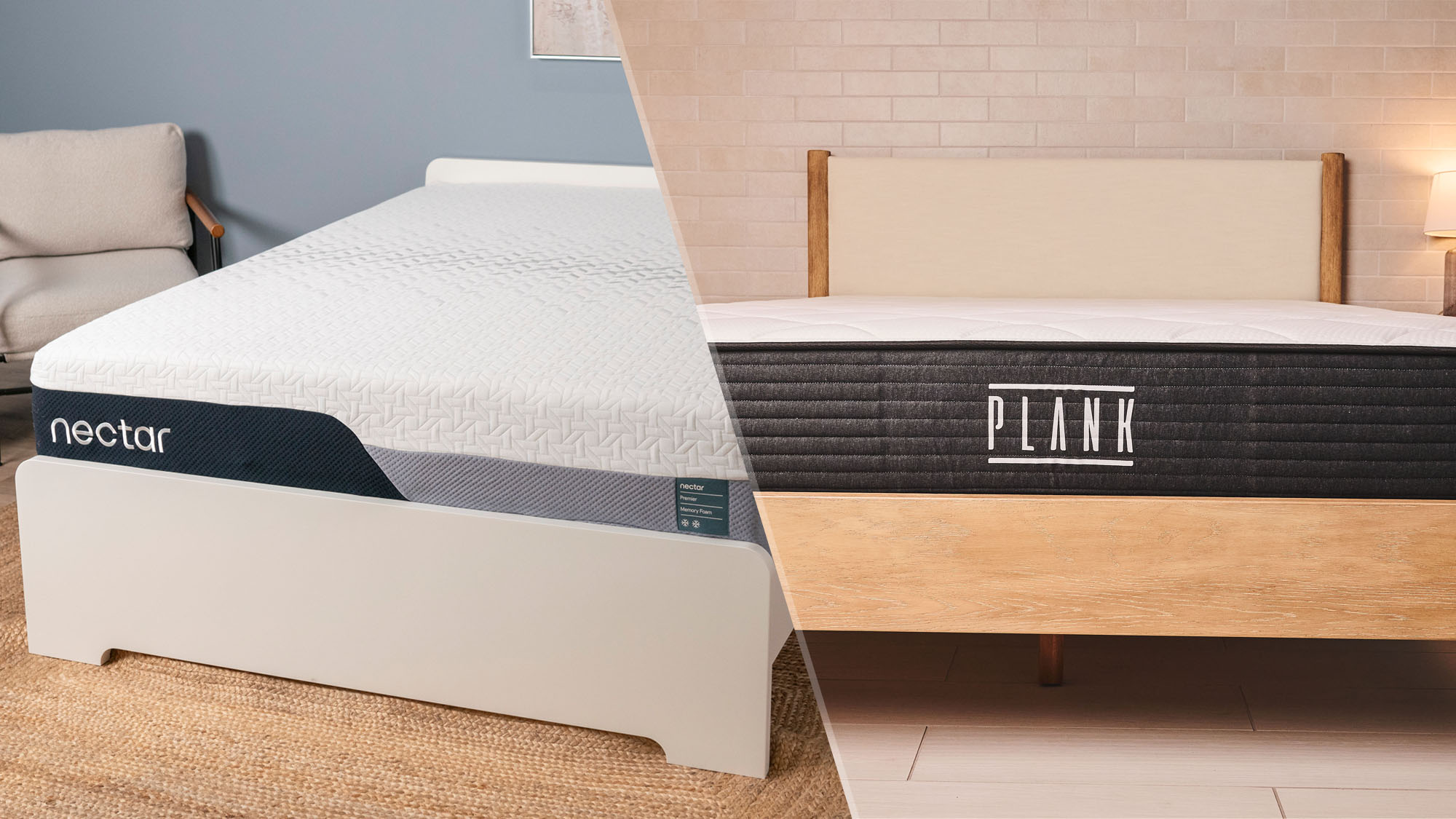I always leave a bay leaves in my flour containers — here’s why this natural hack keeps my pantry pest-free
By Madeleine Streets
Copyright tomsguide

Skip to main content
Tom’s Guide
Newsletters
View Profile
Search Tom’s Guide
Phone Insights
Phone Best Picks
Phone Deals
Phone Face-Offs
Phone How-Tos
Phone Reviews
Network Carriers
Android Phones
Google Phones
Motorola Phones
OnePlus Phones
Samsung Phones
Nothing Phone
TV Best Picks
TV Face-Offs
Audio Insights
Audio Best Picks
Audio Deals
Audio Face-Offs
Audio How-Tos
Audio Reviews
Over-Ear Headphones
Bluetooth Speakers
Entertainment
Streaming Devices
Prime Video
Paramount Plus
Playstation
Gaming Peripherals
Connections
Computing Insights
Computing Best Picks
Computing Deals
Computing Face-Offs
Computing How-Tos
Computing News
Computing Reviews
VPN Best Picks
VPN Face-Offs
VPN How-Tos
VPN Reviews
Operating Systems
Malware & Adware
Smart Glasses
Chromebooks
Gaming Laptops
Apple Desktops
Gaming Desktops
Android Tablets
Computing Brands
AI Insights
AI Best Picks
AI Face-Offs
Google Gemini
Apple Intelligence
Mattress Best Picks
Mattress Deals
Mattress Face-Offs
Mattress How-Tos
Mattress News
Mattress Reviews
Mattress Care
Mattress Toppers
Pillows & Bedding
Smartwatches
Fitness Trackers
Smart Rings
Apple Watch
Home Insights
Home Best Picks
Home Face-Offs
Home How-Tos
Home Reviews
Home Topics
Home Appliances
Home Office
Home Security
Home Brands
Popular Brands
View Phones
Phone Insights
Phone Best Picks
Phone Deals
Phone Face-Offs
Phone How-Tos
Phone Reviews
Network Carriers
View Network Carriers
Android Phones
View Android Phones
Google Phones
Motorola Phones
OnePlus Phones
Samsung Phones
Nothing Phone
TV Best Picks
TV Face-Offs
Audio Insights
View Audio Insights
Audio Best Picks
Audio Deals
Audio Face-Offs
Audio How-Tos
Audio Reviews
Headphones
View Headphones
Over-Ear Headphones
View Speakers
Bluetooth Speakers
Entertainment
View Entertainment
View Streaming
Streaming Devices
Prime Video
Paramount Plus
View Gaming
Playstation
Gaming Peripherals
Word Games
Connections
View Computing
Computing Insights
Computing Best Picks
Computing Deals
Computing Face-Offs
Computing How-Tos
Computing News
Computing Reviews
VPN Best Picks
VPN Face-Offs
VPN How-Tos
VPN Reviews
View Hardware
View Software
Operating Systems
View Security
Malware & Adware
View VR & AR
Smart Glasses
View Laptops
Chromebooks
Gaming Laptops
View Desktops
Apple Desktops
Gaming Desktops
View Tablets
Android Tablets
Computing Brands
AI Insights
AI Best Picks
AI Face-Offs
AI Engines
Google Gemini
Apple Intelligence
View Wellness
Mattresses
View Mattresses
Mattress Best Picks
Mattress Deals
Mattress Face-Offs
Mattress How-Tos
Mattress News
Mattress Reviews
Mattress Care
Mattress Toppers
Pillows & Bedding
View Fitness
Smartwatches
Fitness Trackers
Smart Rings
Apple Watch
Home Insights
Home Best Picks
Home Face-Offs
Home How-Tos
Home Reviews
Home Topics
Home Appliances
Home Office
Home Security
View Outdoors
Home Brands
Popular Brands
Apple Event
iPhone 17 Pro
The World in 2035
Wordle Today
Best laptops
Best Mattress
Don’t miss these
Keep flies out of your home this summer — pair these 2 cheap household staples to deter them
The secret to a spider-free home is hiding right in your pantry
Pest expert says you should use cinnamon in your home to deter flying ants — here’s why
Experts urge homeowners to sprinkle mint in their yards this summer — here’s why
Keep aphids out of your garden with this surprising ingredient
House flies ruining your summer? Keep them out with these plants
5 household items that are causing fruit flies to invade your home — and how to get rid of them
Expert reveals the one bathroom item that will quickly drive ants away from your home
Experts say you should spray vinegar outside your front door this summer — here’s why
Gardeners urged to use mushrooms in the yard this summer — this hack will banish aphids in minutes
Kitchen & Dining
9 experts tips to keep your trash can clean and kitchen insect-free this summer
It’s not just for baking — here’s 3 ways a sprinkle of cinnamon can transform your yard
I asked pest experts what I need to buy to prevent mice in my home — here’s what they recommend
Fungus gnats will avoid your houseplants if you make this expert-approved 3-ingredient trap
Heading on vacation? Expert shares the ‘often overlooked’ routine that will keep pests away from your home
I always leave a bay leaves in my flour containers — here’s why this natural hack keeps my pantry pest-free
Madeleine Streets
10 September 2025
Bay leaves are useful for more than just flavoring your food
When you purchase through links on our site, we may earn an affiliate commission. Here’s how it works.
(Image credit: Shutterstock)
Home baking is a great way to create delicious treats and mealtime staples, without the preservatives or price markups of commercial brands. It’s also just a lot of fun, whether you’re whipping up a batch of cupcakes or making bread loaves for the week. What isn’t fun is realizing that your pantry ingredients have been contaminated by little insects, right when you’re ready to bake.
Pantry moths are a common pest that like to eat the same food as you and I, which is why they’re drawn to flour and other dry foodstuffs. While they aren’t toxic to humans, a single moth can quickly become an infestation and no one wants to be dealing with insects in the home, let alone inside their baked goods. They can easily be brought into the house via packaging or self-serve bulk bins at the grocery store, so keeping a clean house isn’t necessarily going to keep them at bay.
What does seem to work? Bay leaves.
You may like
Keep flies out of your home this summer — pair these 2 cheap household staples to deter them
The secret to a spider-free home is hiding right in your pantry
Pest expert says you should use cinnamon in your home to deter flying ants — here’s why
By simply placing a few bay leaves inside or next to your flour containers, you should be able to ward off any wayward pantry moths that are looking to lay eggs – without impacting the quality or condition of your ingredients.
Why you have pantry moths
(Image credit: Shutterstock)
As the name suggests, pantry moths are small moths that are often found inside pantries or cabinets full of dried goods. The formal name for this insect is the Indian meal moth and it likes to eat — and therefore infest — a range of foods, from flour and grains to baking chocolate and dried fruit. Herbs, spices, and even potpourri mixes aren’t safe from this moth, which is what makes your baking pantry such an attractive home.
Moths develop through a traditional lifecycle of eggs to larvae to adult moths. The eggs are whitish-gray and microscopic in size, measuring approximately 1-2 hundredths of an inch. Moths may lay hundreds of eggs at once. Once they hatch, the larvae spend several weeks eating and growing until they are ready to spin their cocoon and emerge as a moth. As larvae, the insects are still whitish in color with a brown head, but their size can make them difficult to see until they are fully grown. At full length, they reach about half an inch in size.
Pantry moths aren’t drawn to mold or decay, so an infestation doesn’t mean that your pantry is dirty. It’s much more likely that the creatures were brought in on the original packaging of something being kept in the pantry. Moths could have laid eggs on the surface of this packaging at any point in the production journey, including the final stop at the grocery store. These eggs can often be hard to spot at a glance and so you might not realize your box of flour is contaminated until it’s been sitting in your pantry for a few days.
Sign up to get the BEST of Tom’s Guide direct to your inbox.
Get instant access to breaking news, the hottest reviews, great deals and helpful tips.
Contact me with news and offers from other Future brandsReceive email from us on behalf of our trusted partners or sponsorsBy submitting your information you agree to the Terms & Conditions and Privacy Policy and are aged 16 or over.
Why are pantry moths a problem?
(Image credit: Shutterstock)
The larvae of the pantry moth are not poisonous to eat, but they can still spoil the food that they’ve infested. This is because the larvae spin silk to form their cocoons and this process can lead to clumps of silk in your flour that are covered in fecal matter, moth egg shells, and even the cast-off skins of the larvae. Unappetizing, to say the least.
One bit of good news is that pantry moths have no interest in fabrics or furniture, so an infestation shouldn’t cause any damage to the rest of the home. However, they can be hard to contain once the larvae have got established. Since the moth lays hundreds of eggs at a time, a single contaminated package can result in a large number of larvae and eventually a lot of moths. These insects are also able to chew through thinner plastics and paper, so they can easily transfer from one container of dried goods to another. Once a container has been contaminated, you really need to throw it out and replace it entirely – so the more packages affected, the more extensive and expensive this process will become.
Why bay leaves work
(Image credit: Shutterstock)
Treating baking ingredients for pests is tricky, since traditional pesticides are not safe to use around food and therefore you’ll be ruining the flour even if you do eradicate the moth problem.
This is why bay leaves are the perfect solution to combat pantry moths.
Bay leaves may be subtle in flavor to us but they contain eucalyptol, an essential oil that has been shown to repel a range of insects, such as mosquitos. The insects are deterred by the fragrance of the bay leaves and will therefore move elsewhere to lay their eggs, to avoid the discomfort of the scent. By placing bay leaves inside your flour containers, you protect them from potential infestation. You can even place a few loose leaves on top of or around the containers, for added effect.
Not only are bay leaves easily accessible at most grocery stores, but they are a safe and cost-effective alternative to chemical pesticides. Using bay leaves is also a very low-lift way to approach the problem: Each leaf can be used for several weeks at a time, meaning you only need to replace them sparingly.
The best way to use them
(Image credit: Shutterstock)
If possible, replace your current dry goods containers for glass or metal ones that can’t be penetrated by the moth larvae. This is useful as an added line of defence against infestation. Then, after filling the containers with their relevant product, place a couple of bay leaves inside each of the dried goods. This includes flour and sugar, but also cereals, pet food, teas, and any other dry food stuff that you commonly keep in the pantry.
2 Pack 79oz Glass Jar with Lid: was $32 now $27 at Amazon
Ideal for storing pantry essentials, this two-pack of glass storage containers features a rubber seal to keep things airtight, and measurements along the side for easy dispensing.
You only need to use about 1-2 per container, but you can also tape one or two to the outsides of larger items as an added precaution. If your pantry is large, you might want to put a couple extra on the shelves themselves. Every 3-4 months, you’ll want to replace the bay leaves with fresh ones. One way to test if the leaves may be losing potency is to give them a sniff; while the scent is always quite subtle, if you can’t smell anything at all then it’s time to swap them out for a fresh batch of leaves.
This should be sufficient to keep pests at bay, but make sure to practice good habits as well to minimize the risk of infestation. You want to make the pantry as undesirable as possible, so don’t tempt pests with bits of food. This means keeping containers fully sealed and air-tight, as well as cleaning up any crumbs or spills as quickly as possible.
More from Tom’s Guide
I cleaned my house using only homemade cleaning products for a week
Your kitchen has a secret cleaning weapon you never knew about — and it costs less than $1
Don’t let germs lurk — how to clean your fridge dispenser
Madeleine Streets
Contributing Gardens Writer
Despite making her home in urban metropolises, Madeleine Streets has been nurturing a green thumb for decades.
Raised by a garden designer, she is putting that childhood education to use by helping others learn how to make their garden bloom, while filling her own New York home with cat-friendly plants.
When not writing about gardening and the outdoors, Madeleine loves to cook, study wine and borrow books from her local library.
You must confirm your public display name before commenting
Please logout and then login again, you will then be prompted to enter your display name.
Keep flies out of your home this summer — pair these 2 cheap household staples to deter them
The secret to a spider-free home is hiding right in your pantry
Pest expert says you should use cinnamon in your home to deter flying ants — here’s why
Experts urge homeowners to sprinkle mint in their yards this summer — here’s why
Keep aphids out of your garden with this surprising ingredient
House flies ruining your summer? Keep them out with these plants
Latest in Home
Ninja, Dyson and Shark appliances are up to 50% off on Amazon — here’s 15 deals I’d shop for my home
Google’s Gemini-powered Nest devices are already appearing at retailers — what we know
KitchenAid’s Porcelain White Collection just got bigger — it’s a much-loved modern classic
Solo Stove’s new smokeless fire pit is way easier to start – and clean
Lexar Pexar 11-inch Digital Frame review: A cloud-free, high-resolution option for displaying photos
Stop making this big mistake that’s ruining your induction cooktop
Latest in Features
As a TV expert, here are the 3 features I look for instead of shopping by brand
I made a 7-song playlist (plus a bonus track) in under 30 minutes with this free AI music tool — no subscription needed
I always leave a bay leaves in my flour containers — here’s why this natural hack keeps my pantry pest-free
I reviewed the iPhone 16 — 5 last-minute rumored iPhone 17 upgrades I’m excited for
Apple Watch 11 vs Apple Watch Ultra 3 vs Apple Watch SE 3: All the rumored new features
I test TVs for a living — here are 3 reasons I’d splurge on OLED over a cheap TV
LATEST ARTICLES
iPhone Air vs iPhone 17 Pro vs Pro Max: Which new iPhone should you buy?
Apple Watch 11 — 5 reasons I’d buy the new Series 11, and 2 reasons I’d skip it
Forget iPhone 17 Pro — that A19 Pro chip needs to be in a MacBook like yesterday
Dangerous new RatOn Android trojan can automatically transfer money right off your phone to hackers
I’ve already streamed all 6 episodes of Prime Video’s new psychological thriller — and it’s a dark, twisty series that’ll have you hooked
Tom’s Guide is part of Future US Inc, an international media group and leading digital publisher. Visit our corporate site.
Terms and conditions
Contact Future’s experts
Privacy policy
Cookies policy
Accessibility Statement
Advertise with us
Future US, Inc. Full 7th Floor, 130 West 42nd Street,
Please login or signup to comment
Please wait…



